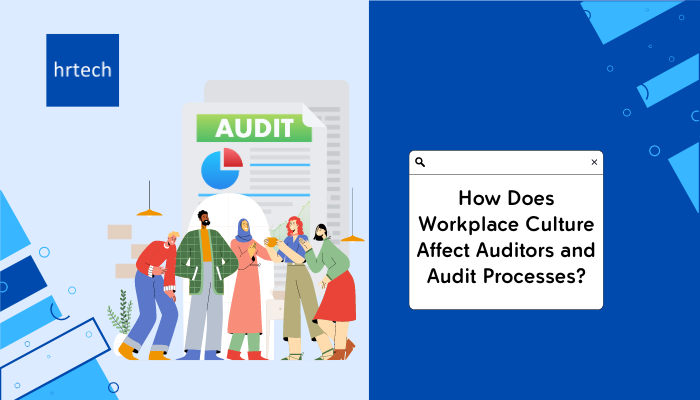A study found that auditors who perceived fairer treatment from client employees were more likely to offer value-added services in addition to the core audit scope.
by M. Geetha, Director of Operations, Service Connections HR Consultancy Pte Ltd

Workplace culture in audit companies can affect auditor independence and auditor-client relationships. External factors related to workplace culture and management expectations could prevent auditors from performing a clean audit.
This article explores how workplace culture affects audit quality.
How Workplace Culture Affects Audit Work
1. Auditor Independence
- Company Objectives
Company objectives influence an audit team’s goals. Suppose the audit firm and audit team supervisors place a high emphasis on achieving high client satisfaction ratings. In that case, auditors might be pressured to focus on relationship quality instead of audit quality.
This could entail relinquishing some of their objectivity and independence to appease the client. Auditors may be discouraged from being excessively sceptical to gain client favour for the benefit of the audit firm.
- Leadership Style
Auditor independence is also impacted by leadership style. Directive, one-way leadership can lead to a loss of auditor independence as individual auditors are constrained by supervisor’s expectations.
More time may also be spent monitoring subordinates, reporting performance, and checking work. Audit teams led by directive leadership may not be allowed to exercise independent judgement.
2. Communication and Cooperation
- Cultural Proximity
Close cultural proximities between auditors and clients improve connections, cooperation, and exchange of information. Research found that close cultural proximities between audit engagement partners and CFOs/CEOs led to a better audit outcome. Cultural similarities between auditors and clients made it easier for auditors to obtain, interpret, and assess financial information. Cultural similarities also make it easier to form cooperative working relationships.
Conversely, a workplace culture clash between the client and audit partner firm can cause a breakdown in communication and trust.
- Working Experience
Auditors who have a pleasant working experience with a client firm may be more willing to impart audit insights and professional advice. A study found that auditors who perceived fairer treatment from client employees were more likely to offer value-added services in addition to the core audit scope.
A workplace culture of respect and receptiveness towards auditors can go a long way in improving communication between audit teams and clients.
- Internal Control Limitations
Audit quality can be affected by client-side workplace factors. Auditors rely on senior management representation, which attests that client-provided financial data is accurate. Suppose a client company’s management fails to practise an open and honest work ethic. In that case, auditors might face internal control limitations such as management override, which involves data manipulation or omission of financial figures.
3. Audit Cost and Duration
- Perception of Workplace Culture
An auditor’s experience and perception of the client’s workplace culture affect the audit cost and duration. A study found that an auditor’s negative perception of client workplace culture led to greater doubt and scepticism.
Auditors subconsciously sense and assess a client company’s workplace culture through work satisfaction, work environment quality, and job operational efficiency. A negative client workplace culture is usually associated with higher risks of mismanagement, misappropriation, theft, and fraud.
Auditors tend to be more wary and alert in such environments and may spend more time and effort checking the client’s accounts. Auditors may also feel less confident about quickly signing off on the company’s financial records, instead spending more time highlighting potential issues and looking through the client’s financial records. As a result, audit fees and duration increase.
Conversely, a collaborative company culture decreases audit fees as employees are encouraged to highlight errors and issues to auditors. This increases information integrity and lowers litigation and audit risk.
Workplace Culture of the Client Affects Audit Quality
Many big league companies get embroiled in scandals due to their workplace culture while auditors suffer the brunt of their association. In 2015, Toshiba was embroiled in one of Japan’s greatest scandals. Toshiba had overstated its profits by billions of dollars when irregularities in Toshiba’s accounting practices were uncovered by Ernst & Young ShinNihon LLC.
The accountants in charge of Toshiba for many years had built a misplaced sense of confidence that Toshiba would not do such things, said an official. Reports revealed internal controls in the financial and corporate auditing divisions of the Toshiba conglomerate. The securities disclosure committee was unsuccessful in identifying and stopping inappropriate behaviors. The auditors do not face an existential liability for their involvement in the Toshiba fraud. Thus the internal workplace culture affected the audit quality of the external auditors, Ernst &Young ShinNihon.
Conclusion
As seen, workplace culture affects the audit process. Auditors’ working environments could impose constraints on them and make it challenging during the audit.
About the Author

Ms M. Geetha, Director of Operations at Service Connections HR Consultancy Pte Ltd, is a recruitment expert with more than 30 years’ experience in the field of human resources and outsourcing. Over the length of her career, she has gained a firm foothold in public sector recruitment, garnered an overnight recruitment drive of 123 customer service personnel, single handedly built up a HR department of a Singapore based offshore company, and spearheaded multiple government-based recruitment projects.





